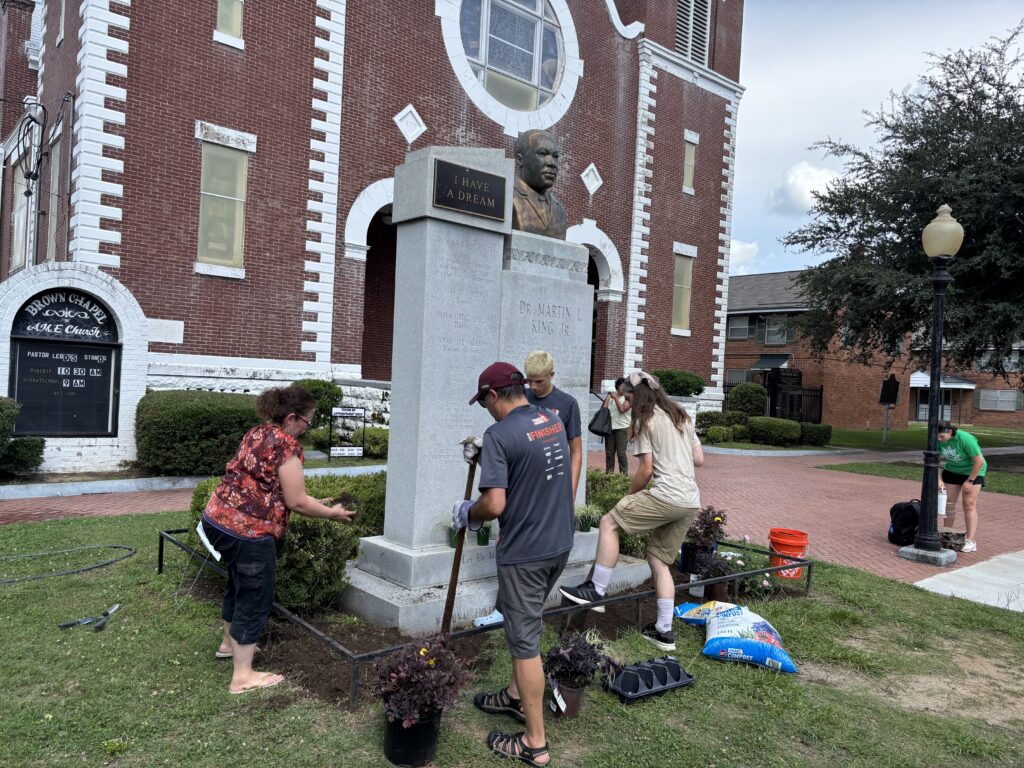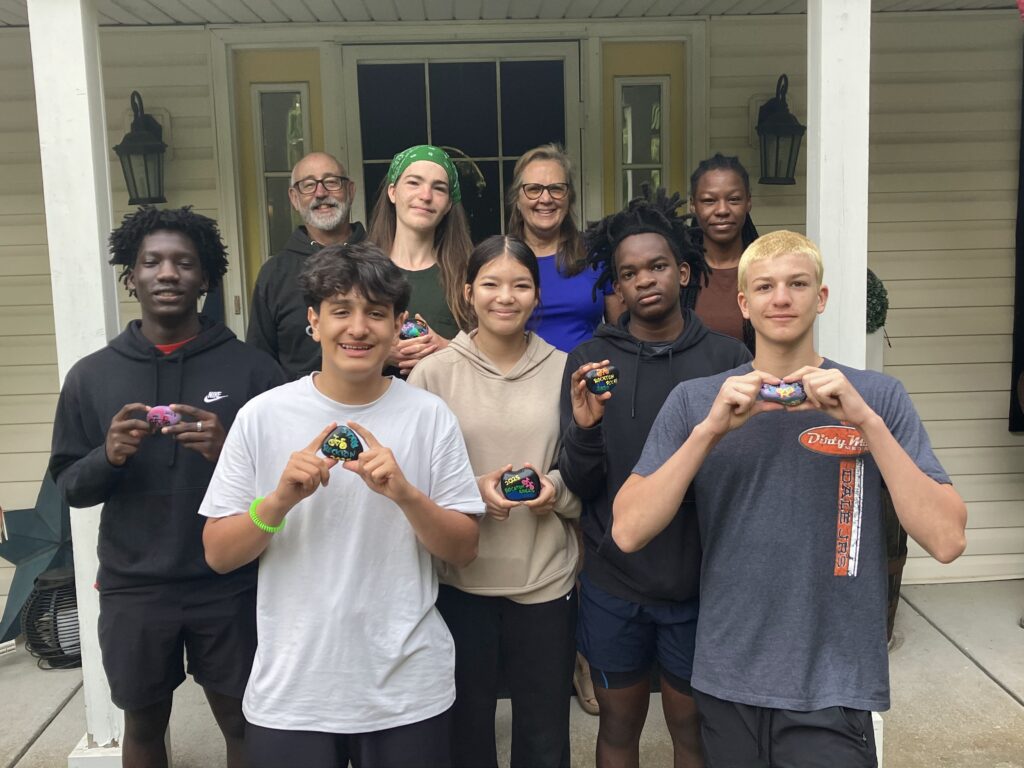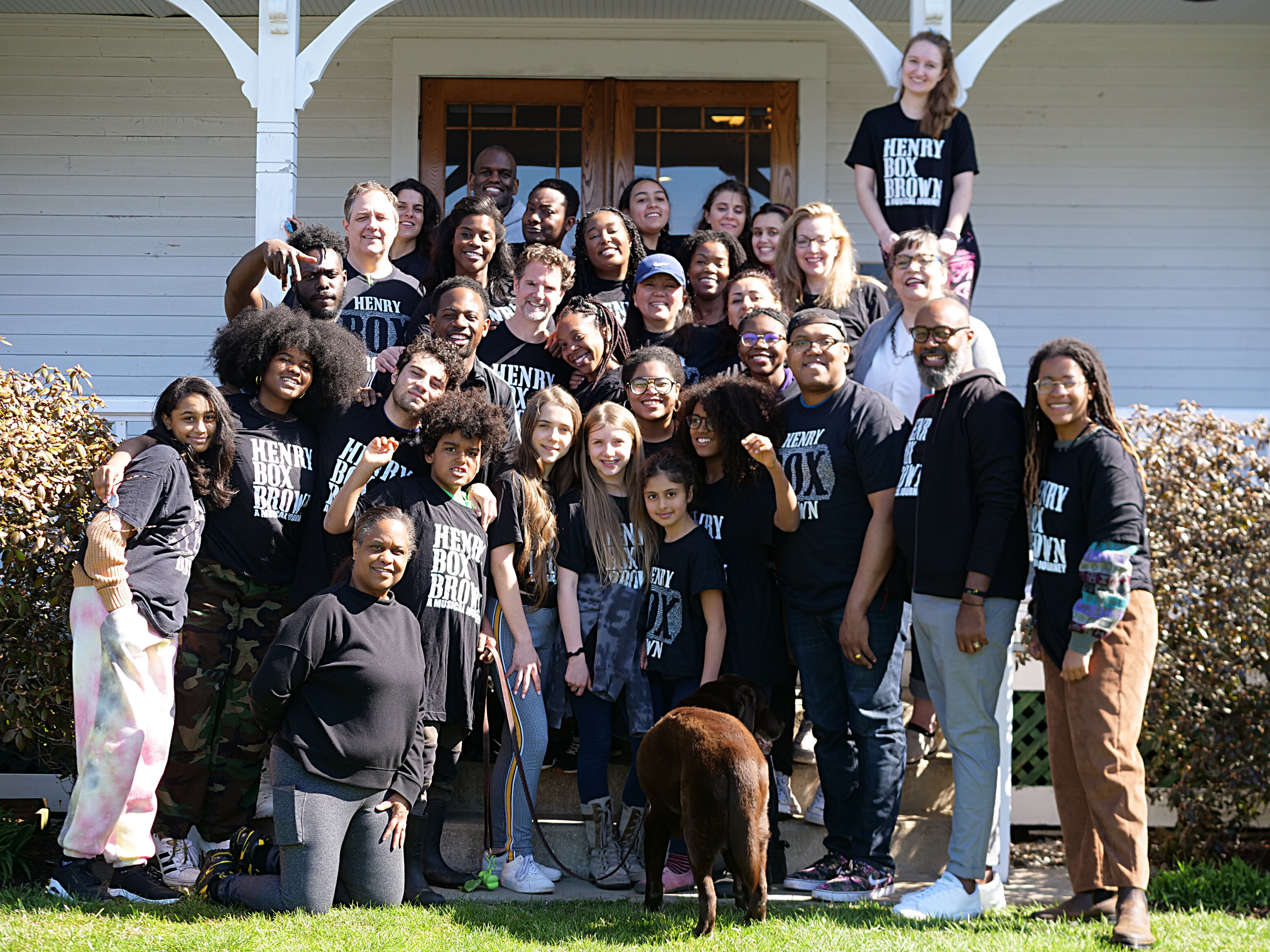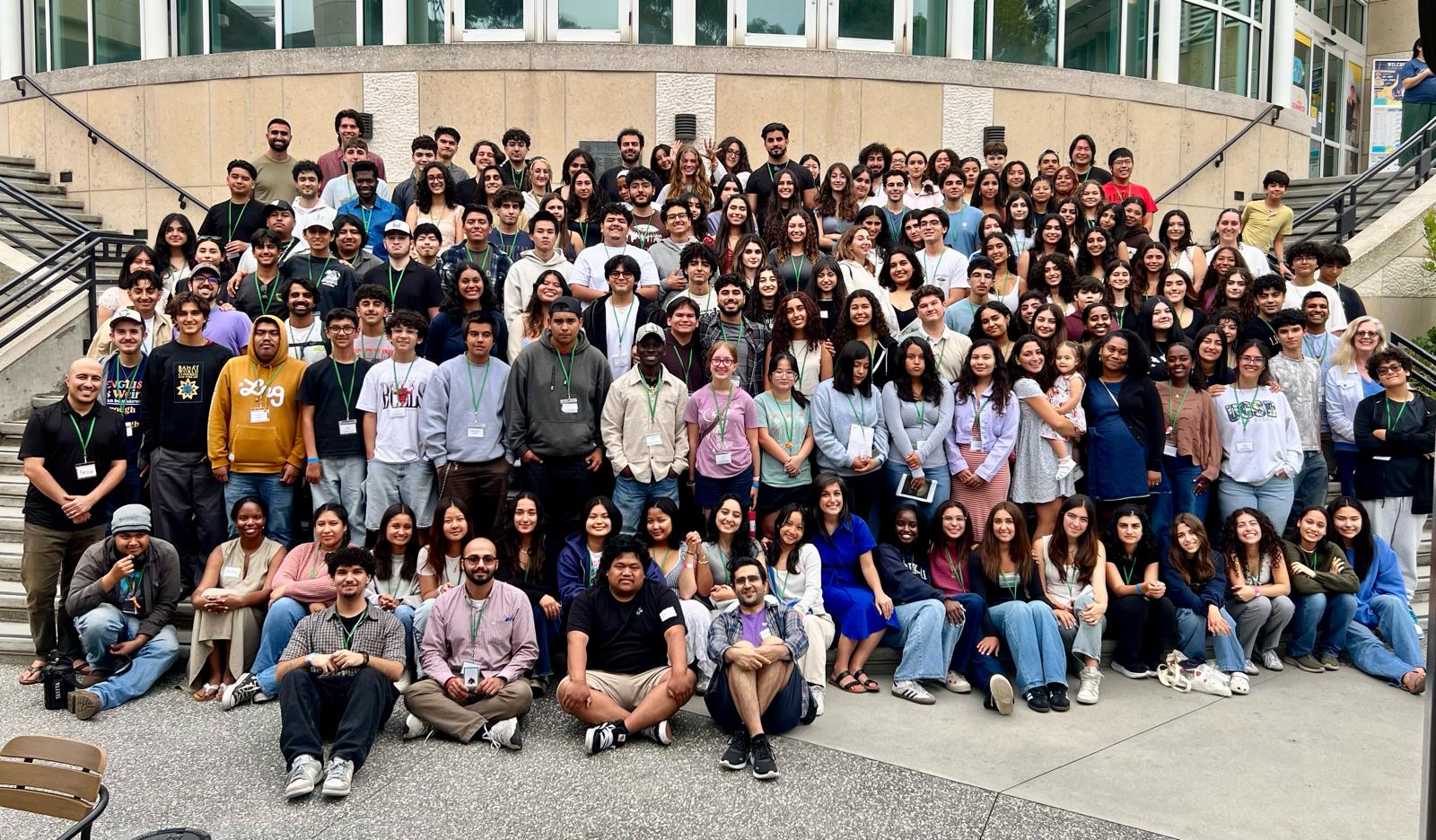
Riders for Race Amity

By Chris Carpenter
A group of Midwestern teens and adults put their feet to the pedals to promote the oneness of humanity. In June, the Riders for Race Amity set out from Madison, Wisconsin, and biked more than 1,200 miles over 10 days. Montgomery, Alabama, marked the end of their ride, where they visited sites that honor and memorialize those who suffered during slavery and its aftermath: the Legacy Museum, the National Memorial for Peace and Justice, and the Freedom Monument Sculpture Park.
Along the way, the group stopped in nine communities where they participated in service projects, spent time getting to know their hosts, and led discussions about race amity. Drawing from materials used by the Baháʼí-inspired Copper to Gold program, the topics included “othering,” “color-blind thinking” and how to handle avoidance around conversations about race.
Kate Vestlie, a Baháʼí living in Madison, said the idea for the ride came to her several years ago in Iraq, while praying in a mosque that Baháʼu’lláh used to frequent. She and a friend later founded the group, along with their teenage sons. The teenagers invited their friends, who invited their friends, and the group grew to 10 youth and 13 adults.
According to Vestlie, the trip was initially meant to uplift and empower people through education about race amity and access to resources like museums. As the youth became more involved, an equally important goal arose: to help them develop their capacity to understand and discuss the issues around race.
“I’m reminding the kids that no matter what stage you’re at with your knowledge and awareness, just meet yourself where you are,” Vestlie says.
To emphasize this point, the group adopted a quotation attributed to ʻAbdu’l-Bahá in Shoghi Effendi: Author of Teaching Plans by Ali Nakhjavani. Nakhjavani wrote, “ʻAbdu’l-Bahá said: ‘If you are asleep, wake up! If you are awake, do not lie down, sit up! If you are seated, stand up! If you are standing, march! If you are marching, run!’ This is a process that God wants us to follow. He does not say, if you are asleep, run! Gradually, step by step, we change.”
Vestlie reached out to Baháʼís and like-minded groups they planned to visit ahead of time, tailoring the discussions and service projects to local circumstances.

In Peoria, Illinois, in addition to other activities, the youth and local teens spent time bonding over volleyball, soccer and basketball; in St. Louis, Missouri, they volunteered in a community hit hard by tornadoes; and in Selma, Alabama, the group helped put in a garden at the base of a bust of Martin Luther King Jr.
The last leg of the ride, from Selma to Montgomery, followed the route taken by Dr. King and his followers in the famous 1965 voting rights march.
The group formed four biking teams and covered the 1,200 miles relay-style, dividing each 100 miles into 25-mile legs, one of which was covered by each team. The three teams not biking followed along in “sag wagons,” which took the form of minivans, resting and preparing for their next turn to ride. At times, such as the ride from Selma to Montgomery, they rode as an entire group.
When Samyiah Myers, a Black 10th grader from the Madison area, got tired during the trip and did not want to continue, an adult host from the local community helped lift her spirits.
“Gwen overheard that and rearranged my mindset to keep going,” Myers says. “She was saying how we can never be done until everyone is equal.”
Myers says that during the trip, she learned how to respond to the heated emotions that can arise when talking about race, and to distance herself when someone makes a comment informed by racism. This makes it easier to address the comment in a way that helps those present to learn from it, she explains.
Kian Yaganagi, a 10th grader of Persian descent, says that in addition to the fun the group had in the communities that hosted them, and the physical challenge of biking each day, he learned about trying to overcome prejudice not only in his community, but within himself.
“I think [the ride] opened my eyes a little bit,” he says. “Sometimes I have that tiny little unconscious bias, and if I think about it and acknowledge it, I can stop it.”

Reagan Ruhweza, also a Wisconsin 10th grader, says that visiting historical sites from the Civil Rights era made the realities of that time feel more real. He also gained a greater understanding of the impact slavery and lynching have had on American culture after visiting the museums and monuments in Montgomery.
“For me it was historical and dark at the same time,” he says.
Ruhweza says he will try to do more to stand up to racism among his classmates in the new school year.
“Going into this trip, I noticed that most of my friends are white, and I’m white,” says 11th grader Henry Riley. “When we were assigned group [service] projects along the way, you only talked to people you were assigned with about the project. I think if you can make friends with people who don’t look like you, that can go a long way towards race amity.”
Vestlie says that many of the people they visited on the ride were impressed by how well the teen participants got along with each other.
“People noticed how much love there was between everyone,” she says. “I don’t know that the love would have been there had we not had a common goal and a common purpose—amity.”
She says she also noticed the teenage riders advancing their own capacities to be community leaders.
“They became more confident as public speakers,” she says, “with some beginning to facilitate group discussions during the trip and volunteering to participate again next year.”





